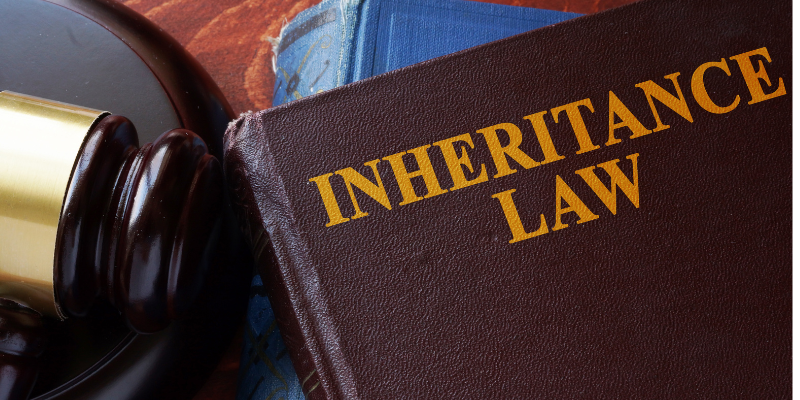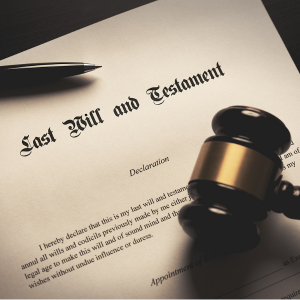
Comprehensive Guide to North Carolina Inheritance Laws and Regulations
Legacies and estates of individuals in North Carolina are managed under particular inheritance laws, specifying which relatives can receive a share of the property. Such laws and other domestic legal instruments decide how the real and immovable estate is divided after a person dies.
Like the rest of the U.S., North Carolina uses intestacy laws when a person dies without leaving a will. The intestacy laws stipulate the order and manner in which heirs will receive their inheritance. The state has a system for probate, which manages the administration of estates to ensure that all legal obligations have been met and that the assets are distributed fairly.
The deceased’s social status also impacts inheritance, whether he left a spouse, children, or other family members. This adds more difficulty to real estate transfers as it may include joint tenancy by entirety or community property.
Executors and beneficiaries must navigate these regulations to manage title transfers and avoid legal disputes properly. Studying North Carolina’s laws and the relevant estate tax ramifications enables people to prepare for smoother asset distribution and also closing costs without a realtor.
For legal advice and expert guidance about inheriting a property in North Carolina, contact us.
How to Create a Valid Will Under North Carolina Law

Creating a legally valid will in North Carolina involves several key steps:
- Ensure Eligibility
– The testator must be at least 18 years old and of sound mind when creating the will. - Put the Will in Writing
– The will must be written, typed, or handwritten to be legally recognized. - Sign the Will
– The testator must sign the will or acknowledge their signature before witnesses. - Obtain Proper Witnesses
– At least two competent witnesses must be present when the testator signs or acknowledges the will. These witnesses should not be beneficiaries. - Clearly Outline Property Distribution
– Include detailed instructions for distributing assets, including real estate, personal property, and financial accounts. - Name an Executor
– Appoint a trusted individual to administer the estate and follow the will’s instructions after death. - Consult an Attorney
– Working with a lawyer familiar with North Carolina inheritance laws can help ensure your will meets all legal requirements and minimizes future disputes.
What Is the Order of Inheritance in North Carolina?
In North Carolina, a specific law related to intestate succession is defined as managing an estate without a will. It follows a legally established hierarchy of bloodlines in a ‘relatives first, before family, more distant, later’ order.
The first in line are the surviving spouse and children. If no surviving spouse or children exist, the deceased’s parents may inherit the estate.
In the absence of children and parents, the deceased falls under a class of possessing collateral relatives, whereby he has brothers and sisters. Children, parents, grandparents, grandchildren, aunts, uncles, and even cousins come later in the line of direct inheritance and can also claim the money.
Knowledge of this order is essential for appropriating a person’s property in North Carolina as per the law of succession. It ensures that properties or real estate are granted based on the state’s governing rules in case a valid will does not exist to put it forth. Understanding this order reasonably enables individuals to plan their estates. It assists mortals in disentangling the probable legal challenges posed by transfers of title deeds, which may arise after the death of a relative.
What Are the Restrictions on Inheritance?

Navigating inheritance in North Carolina involves understanding several legal restrictions that can impact estate planning and property distribution:
- Spousal Elective Share
– A surviving spouse is entitled to claim a portion of the estate, regardless of what the will states, potentially affecting how real estate and assets are distributed. - Intestate Succession Laws
– North Carolina law dictates how assets are divided if someone dies without a will, typically prioritizing spouses and biological children. - Challenges in Blended Families
– Stepchildren or non-traditional beneficiaries may not receive assets under intestate succession unless specifically included in a will. - Restrictions for Minors
– Minors cannot directly inherit property; a guardian or conservator must be appointed to manage inherited real estate until the child reaches legal age. - Limitations on Non-Citizen Heirs
– In some cases, inheritance by non-U.S. citizens may involve additional legal requirements or delays in transferring property. - Probate and Court Oversight
– Inherited property may be subject to probate, during which the court oversees asset distribution, potentially delaying or complicating real estate transactions.
How Much Can You Inherit Without Paying Taxes in NC?
Everybody participating in real estate transactions in North Carolina should understand the nuances surrounding inheritance taxes. Thankfully, executors of estates can transfer property to beneficiaries tax-free because the state does not impose an inheritance tax.
On the other hand, federal estate taxes must be examined first when assessing whether an individual can claim an inheritance without facing tax consequences and figuring out the thresholds that can be claimed tax-free. In 2023, an individual can claim up to $12.92 million without incurring federal estate taxes—a fact often considered by cash home buyers in Charlotte when evaluating inherited property transactions.
As constituents of North Carolina, residents hold this exemption for all forms of assets, including real estate. With portability provisions, the exemption effectively multiplies for married couples, bringing the collective amount passed on to $25.84 million without taxation at the federal level.
While outlining an estate or addressing acquired property, North Carolina heirs and successors should appreciate the state and federal laws and the advantages of real estate transactions.
How Do I Avoid Paying Capital Gains Tax on Inherited Property in North Carolina?
To minimize or avoid capital gains tax on inherited property in North Carolina, consider the following key steps:
- Understand the Stepped-Up Basis
– The property’s value is adjusted to its fair market value at the time of the original owner’s death, which reduces taxable gains if sold shortly after. - Document the Property’s Value at Inheritance
– Obtain a professional appraisal or reliable valuation to establish the fair market value at the time of inheritance. - Hold the Property for Over a Year (if selling later)
Owning the property for more than a year before selling can qualify you for the lower long-term capital gains tax rate, especially if you sell your house for cash in Raleigh and other cities in North Carolina - Use Exemptions and Deductions When Applicable
– Explore potential tax exclusions or deductions related to inherited property or estate settlement costs. - Consult a Tax Advisor or Real Estate Attorney
– Seek professional advice to ensure compliance with North Carolina tax laws and to develop personalized tax-minimization strategies. - Stay Informed on State and Federal Tax Changes
– Keep up with updates to inheritance and capital gains tax regulations that may affect your situation.
Having a hard time avoiding capital tax gains on an inherited property? Turner Home Team can assist you through the entire process.
What Percentage of an Estate Is the Executor Entitled to in North Carolina?
In North Carolina, understanding the compensation entitled to an executor of an estate is crucial for both executors and beneficiaries. An executor’s role involves managing and settling the estate and real property holdings within it, making them/critical in the business.
There is no set percentage regarding the amount of an estate an executor in North Carolina may receive for their services. From what we discussed previously, the remuneration provided to the estate executor appears to be reasonable.
I would estimate between two and five percent of the estate’s total value. However, it may vary in other instances due to the estate’s complexity and size. This estimate may be altered by other executors’ functions, which seem out of the ordinary, unorthodox property stewardship functions, or even peculiar laws of succession for North Carolina.
Executors and heirs should also review any terms outlined in the deceased’s will regarding executor fees or consult with probate courts for guidance on what constitutes reasonable compensation within the framework of North Carolina’s inheritance laws. Such comprehension aids ensure that all stakeholders in the administration and succession of an estate are treated equitably and under the law.
How Much Does an Estate Have to Be Worth to Go to Probate in North Carolina?
Understanding when an estate falls under probate jurisdiction is crucial in managing real estate and property succession in North Carolina. Probate is a court conservation procedure that ensures that a decedent’s estate is distributed according to a testamentary will or intestacy law.
In North Carolina, not all estates need the probate process; the existence of a will, the estate’s value, and the nature of the assets dictate whether probate is necessary. Formal probate proceedings are usually required when the decedent’s estate comprises personal property valued over $20,000. For remarried individuals, however, this limit is raised to $30,000.
This threshold suggests that smaller estates may qualify for the streamlined “summary administration” process, which facilitates expedited asset partitioning without necessitating a complete probate process. However, matters can be more complicated by real property interests as they usually involve some form of probate unless specific provisions are made, such as joint tenancy with right of survivorship.
Understanding the intricacies of North Carolina’s succession laws enables planners and successors to strategically plan for the real estate, land, and property deals during the different phases of the housing cycle probate.
Who Are the Heirs at Law in NC?
Regarding the real estate and property conveyances of North Carolina, the law of heirs is essential. There is perpetually a defined enumerative and qualifying list of successors entitled to succeed to the estate items in a particular intestate succession. Such succession statutes emerge when a decedent dies without leaving a testament.
In North Carolina, the deceased person’s surviving spouse and children are the first heirs at law. Without children, the surviving spouse’s parents may also qualify as heirs.
Where there are no children, parents, siblings, or even more distant relatives, they can step in as heirs. Details about estate planning can affect the distribution channels concerning real property and estates derived from a testamentary will.
For instance, if a decedent leaves behind both a spouse and children, the surviving spouse typically inherits a portion of the estate while the remainder is divided among the children. As in state succession statutes, these subtleties assist with unproblematic property transfer.
Working with a knowledgeable attorney who understands North Carolina’s will bloom has the discernment for untangling such tangled webs quite efficiently..
Do All Heirs Have to Agree to Sell Property in NC?

Understanding estate and inheritance laws in North Carolina is crucial when selling inherited real estate. Typically, all heirs are required to agree to sell a property in NC unless a will or trust specifies otherwise.
If a will was left and states that an executor may sell the property, there is no need to obtain unanimous consent from all heirs. On the other hand, if more than one heir is involved and there are no specific indications in the will, there is usually an agreement before any real estate transaction.
Disagreements among heirs can lead to complications and require legal intervention through partition actions to resolve disputes. For a seamless transaction, heirs must coordinate and adequately consult with a lawyer knowledgeable about estates in North Carolina.
Grasping the intricacies of local real estate and succession principles is essential for avoiding disputes and reaching a consensus with other heirs when selling property in North Carolina.
Is My Wife Entitled to My Inheritance in North Carolina?
To maximize the transfer of an estate and properties, one must understand the inheritance laws, focusing on the spouse’s rights in North Carolina. Concerning whether your wife has a claim to your inheritance, North Carolina follows equitable distribution laws concerning marital property.
A spouse receives inheritances as separate property and is exempt from division during divorce or death. However, if inherited assets like real estate or housing properties are commingled with marital assets—for instance, being used for joint expenditures or shared improvements on a jointly owned property—they may be included in the marital estate.
Thorough documentation alongside separate accounts, which do not co-mingle with joint accounts, ensures inherited funds are not altered from their classification as separate property. An attorney who understands the intricacies of North Carolina’s patrimony and property laws will provide guidance on how best to shield a person’s inheritance from the convolutions of probate proceedings and transfer of title to real estate within marriage.
Knowing these legal differentiations protects you in the realm of real estate and personal possessions in North Carolina.
Do you need to sell your home? Sell quickly, avoid costly repairs, or prefer a hassle-free sale. Turner Home Team is here to help. We offer fair cash offers, handle all the details, and make the process seamless. Ready to sell or have questions? Call us at (252) 525-4780 for a no-obligation offer. Get started today!
| INTESTATE SHARE | INTESTATE PROPERTY | INTESTACY LAWS | INTESTACY | TESTAMENTARY TRUSTS | LAST WILL AND TESTAMENT |
| DEVISEE | WILL AND TESTAMENT | TESTAMENTARY | COURT | WEDLOCK | DISINHERITED |
| TOTAL ASSETS | LIFE ESTATE | TRUST | SURVIVORSHIP | JOINT TENANT | TENANTS BY THE ENTIRETY |
| RIGHT OF SURVIVORSHIP | JOINT PROPERTY | TENANCY BY ENTIRETIES | PROBATED | PROBATING | CLERK OF SUPERIOR COURT |
| CLERK OF COURT | CLERKS OF COURT | ATTORNEYS | LAWYER | GRANDCHILD | FAMILY |
| GRANDCHILDREN | DEED | DEED OF CONVEYANCE | DEBTS | BENEFICIARY | OWNERSHIP |
| MONEY | TENANT | INTESTATE SUCCESSION ACT | INFORMATION | ESTATE ADMINISTRATION | MANAGEMENT |
| LIFE INSURANCE POLICY | LIFE INSURANCE | INTERNET | INSURANCE | CREDITORS | AUTOMOBILES |
| BANK | ADOPTED CHILDREN | ADOPTION | SIGNATURE | POWER OF ATTORNEY | HEALTHCARE POWER OF ATTORNEY |
| LIABILITY |
